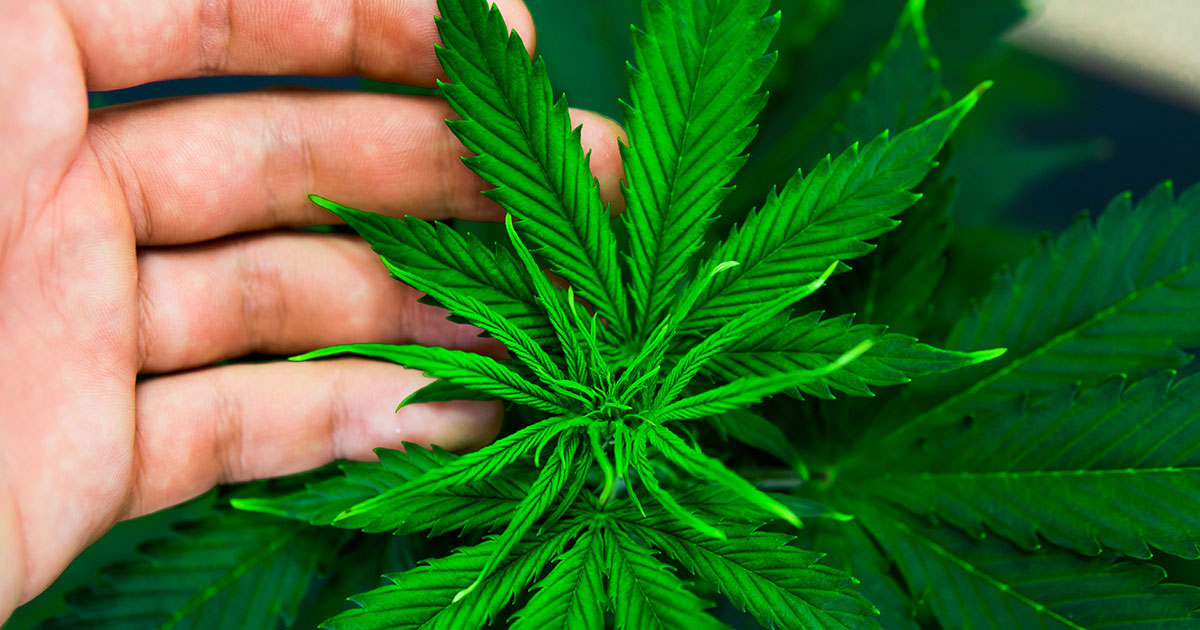
Nov. 12, 2025 – A required administrative referral for criminal prosecution didn’t apply for allegedly breaking controlled substances laws, the Wisconsin Court of Appeals recently held in
State v. Syrrakos, No. 2024AP554-CR and
State v. Shattuck, No. 2024AP556-CR (Oct. 29, 2025) (recommended for publication).
The Court of Appeals reversed and remanded the consolidated cases against Christopher J. Syrrakos and Kristyn A. Shattuck to Waukesha County Circuit Court.
The circuit court dismissed the cases because the Department of Agriculture, Trade and Consumer Protection (DATCP) as the regulator of hemp licenses had not referred the matter for criminal prosecution.
“This prohibition does not apply to the charges against Syrrakos and Shattuck,” Presiding Judge Lisa S. Neubauer explained, “because neither has been charged with violating [the hemp statute or DATCP regulations], and they have not shown that the conduct alleged in the complaint violates the statute or those rules.”
The unanimous District II panel included Judges Mark D. Gundrum and Maria S. Lazar.
Hospitalized From THC Gummies
Under a hemp processor license, Syrrakos owned and operated Superstar Buds in Menominee Falls. Syrrakos lived with Shattuck in Menominee Falls.
 Jay D. Jerde, Mitchell Hamline 2006, is a legal writer for the State Bar of Wisconsin, Madison. He can be reached
by email or by phone at (608) 250-6126.
Jay D. Jerde, Mitchell Hamline 2006, is a legal writer for the State Bar of Wisconsin, Madison. He can be reached
by email or by phone at (608) 250-6126.
The store sold hemp products. Hemp comes from a plant biologically similar to the plant that produces marijuana. Both contain delta-9-tetrahydrocannabinol (THC), the intoxicant in marijuana. The difference is in how much THC.
Under Wis. Stat.
section 94.55(1), hemp products may be sold with THC of not more than 0.3% on a dry weight basis, or the maximum allowed under federal law up to 1%, whichever is greater.
Any product with THC greater than the maximum is a controlled substance – an illegal drug as defined under Wis. Stat.
section 961.14(4)(t).
Law enforcement investigated Syrrakos after receiving information that children had been hospitalized after ingesting a sample of a THC gummy from the store.
Waukesha police made undercover purchases at the store. They searched a dumpster near the store and garbage outside the residence.
From these activities, police obtained items with “concentrations of THC in excess of the legal limit.”
Search warrants of the store and residence found additional products that “tested positive for THC.”
According to the complaint referenced in the decision, police purchased vape cartridges with THC concentrations of as much as 40.32% and “moonrocks” with concentrations of as much as 7.11%.
Based on such evidence, the state charged Syrrakos with 11 violations of Wisconsin’s controlled substances law for manufacturing or delivery, possession with intent to deliver, possession, and “maintaining a drug trafficking place.”
Shattuck was charged with “maintaining a drug trafficking place” at the residence.
Competence?
Syrrakos and Shattuck filed a motion to dismiss for lack of subject matter jurisdiction because, they argued, Wis. Stat.
section 961.32(3)(c) required referral from DATCP before the state could charge them with criminal violations.
The circuit court denied the motion.
On reconsideration before another judge, the circuit court concluded that “negligent violation rules … apply fully to all forms of production regulated by” DATCP licenses, including for processing hemp.
It then rejected the state’s argument that Wis. Stat. section 94.55 didn’t govern the activities because the products weren’t hemp based on the higher amount of THC.
Without the state receiving the case on referral from DATCP, the circuit court dismissed the complaints because the court lacked competence.
Not Hemp
The Court of Appeals analyzed the case as “whether a referral was required. The answer to that question turns on whether Syrrakos and Shattuck are ‘person[s] who violate[d] [§] 94.55 or a rule promulgated [there]under.’”
The state points to violations of the controlled substances statutes – not under Wis. Stat. section 94.55 regulation of hemp production.
As the state explained, “the charges against Syrrakos and Shattuck are not for the production of ‘hot’ hemp,” which is hemp above the legal limit that a grower may destroy or remediate for compliance, the Court of Appeals wrote.
It is “rather for Syrrakos’ allegedly intentional possession, manufacture, and delivery of products containing levels of THC far in excess of the legal limit and his and Shattuck’s alleged maintenance of drug trafficking places.”
In contrast, the appeals court explained, the defendants point to Syrrakos’ hemp processor license as requiring DATCP referral for charges.
The Court of Appeals agreed that the charges did “not arise out of … manufacture, possession, or sale of hemp. They relate, instead, to items with THC concentrations far in excess of the level that would make them hemp under Wisconsin law.”
“These items, as alleged in the complaint,” the court explained, “are not ‘hemp’ as defined under § 94.55(1); they are controlled substances under” Wis. Stat. section 961.14(4)(t).
Processors, Not Growers
While the defendants argue any violations fall under DATCP regulations, the court explained, “these rules do not apply to persons, like Syrrakos and Shattuck, who are not licensed to grow hemp.”
“As the text of these rules makes clear,” the court said, “sampling, testing, destruction, and remediation are activities that pertain to hemp plants that are grown in lots.
“Only a person to whom the DATCP issues a grower license is authorized to grow hemp,” making such remedies available only to licensed growers, a conclusion reinforced by DATCP’s analysis of its rules, the court explained.
“It is undisputed that Syrrakos held only a processor license,” the court said.
“That license allowed him to ‘store, handle, and convert hemp into a marketable form.’ … It did not allow him to grow hemp. And Shattuck did not hold any licenses related to hemp.”
This article was originally published on the State Bar of Wisconsin’s
Wisbar Court Review blog, which covers case decisions and other developments in the Wisconsin Supreme Court, the Wisconsin Court of Appeals, and the U.S. Court of Appeals for the Seventh Circuit. To contribute to this blog, contact
Joe Forward.
